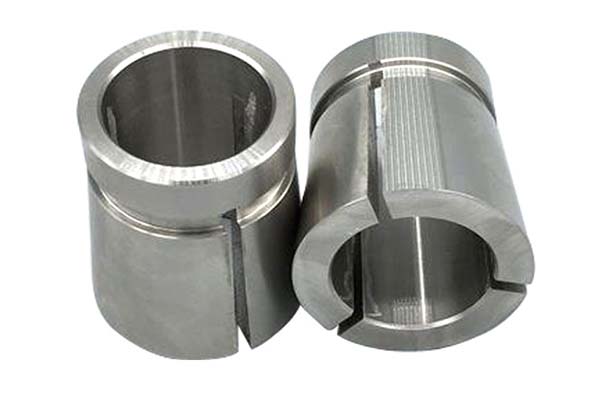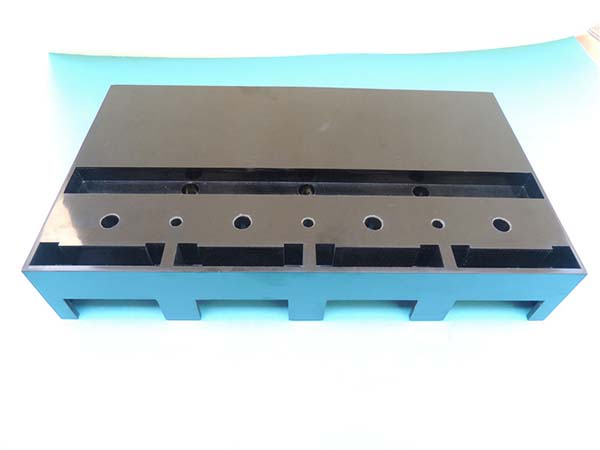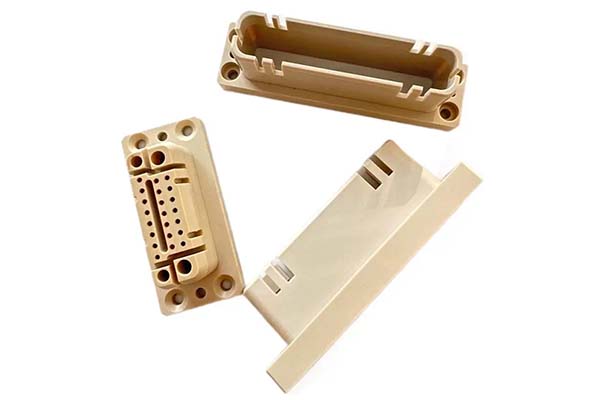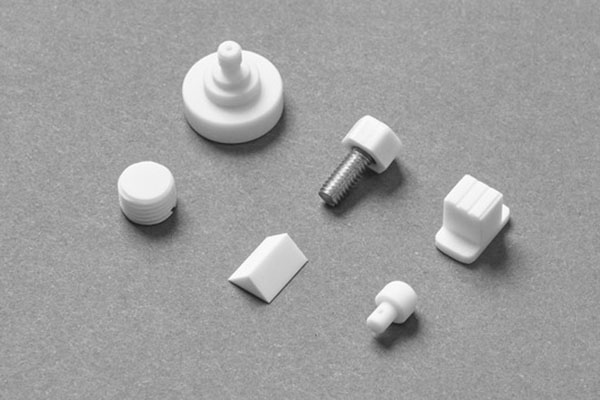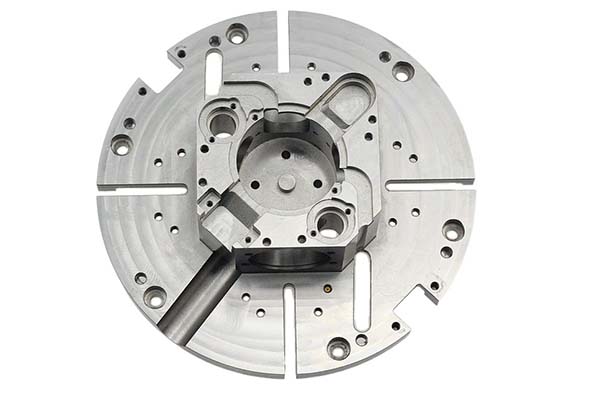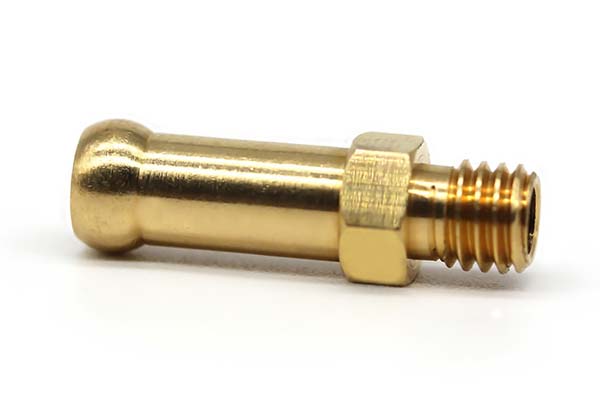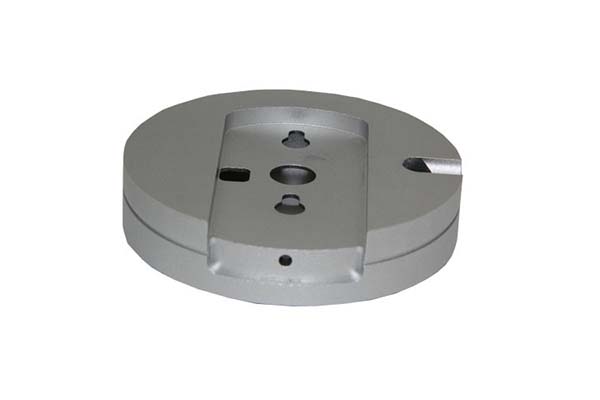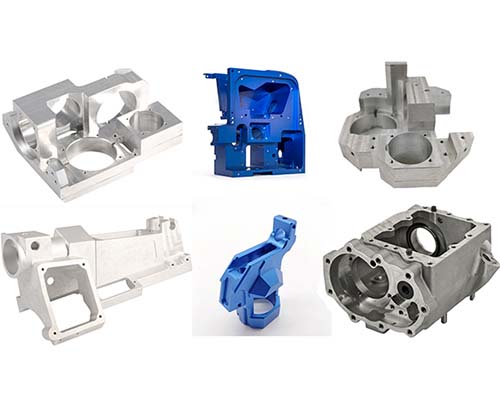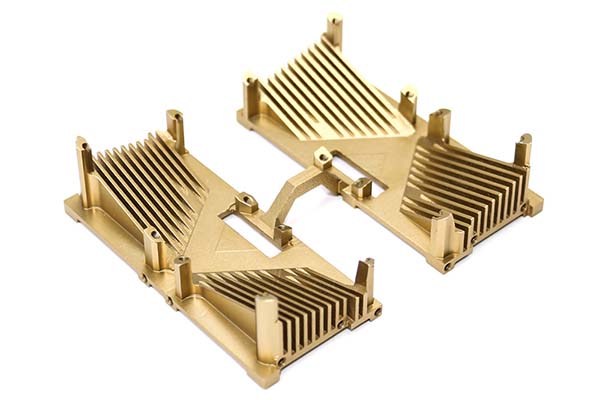Manufacturers working with AL7050 aluminum alloy in the T7451 temper often face daunting challenges. Its exceptional strength—while a boon for high-performance applications—makes CNC machining notoriously tricky. Common pain points include excessive tool wear, difficulty achieving tight machining tolerances, and maintaining surface integrity during cutting. This guide demystifies the process, covering everything from material properties to advanced machining techniques, ensuring you can leverage AL7050 T7451’s strengths without falling prey to its machining hurdles.
Material Specifications: Why AL7050 T7451 Stands Out
AL7050 aluminum alloy is a high-strength, heat-treatable material engineered for demanding environments. Its alloy composition—primarily aluminum with zinc (5.7–6.7%), magnesium (1.9–2.6%), and copper (2.0–2.6%)—delivers a unique blend of properties:
- Mechanical properties: With a tensile strength of 510–560 MPa and yield strength of 450–500 MPa, it outperforms many structural alloys, making it ideal for load-bearing parts.
- Hardness: Rated at 135–150 HB, it balances strength and machinability better than the even harder 7075 alloy.
- Elongation: 10–14% elongation allows for moderate forming before fracture, useful in complex part designs.
- Corrosion resistance: While not as naturally resistant as 6061, proper surface treatments (like anodizing) enhance its ability to withstand harsh environments.
A comparison with other high-strength alloys highlights its advantages:
| Property | AL7050 T7451 | AL7075 T6 | AL6061 T6 |
| Tensile Strength | 530 MPa | 572 MPa | 310 MPa |
| Yield Strength | 475 MPa | 503 MPa | 276 MPa |
| Hardness | 140 HB | 150 HB | 95 HB |
| Corrosion Resistance | Good (with treatment) | Fair | Excellent |
Heat Treatment and the T7451 Temper: The Science Behind the Strength
The T7451 temper is critical to AL7050’s performance. This condition is achieved through a precise heat treatment process:
- Solution heat treatment: Heating to 470–490°C to dissolve alloying elements into a uniform solid solution.
- Quenching: Rapid cooling in water to trap elements in supersaturated form, increasing hardness.
- Artificial aging: Heating to 120–125°C for 24 hours to precipitate fine intermetallic particles, balancing strength and corrosion resistance.
- Stretching: Applying 1–3% cold work after quenching to relieve internal stresses, ensuring dimensional accuracy during machining.
Microstructural changes during aging create a fine-grained structure that resists crack propagation, enhancing fatigue performance. Unlike overaging (which softens the alloy), T7451 strikes a sweet spot between strength and stability. Note that post-machining heat treatment is rarely needed, as it can compromise previously achieved tolerances.
CNC Machining Techniques for AL7050 T7451: Precision in Practice
Machining AL7050 T7451 requires specialized techniques to handle its hardness and avoid tool wear. Here’s how to optimize the process:
Cutting Tools and Parameters
- Cutting tools: Carbide tools (preferably with TiAlN or TiCN coatings) are essential. End mills with 4–6 flutes reduce chatter, while solid carbide drills and reamers maintain precision in hole-making.
- Machining parameters:
- Cutting speed: 100–200 m/min for milling; 150–300 m/min for turning (slower than for 6061 to reduce tool stress).
- Feed rate: 0.1–0.2 mm/rev to balance material removal and surface quality.
- Depth of cut: 1–2 mm for roughing; 0.1–0.3 mm for finishing to minimize work hardening.
Achieving Precision and Surface Finish
- Precision machining: Modern CNC machines with high rigidity can hold machining tolerances of ±0.005 mm, critical for aerospace components.
- Surface finish: Target Ra 1.6–3.2 μm using high-speed finishing passes and coolant systems that reduce friction. Avoid dry machining, as heat can cause work hardening.
Overcoming Challenges
- Tool wear: Inspect tools hourly; replace when flank wear exceeds 0.2 mm. Use high-pressure coolant to flush chips and cool the cutting zone.
- Work hardening: Minimize multiple passes over the same area, as each cut increases surface hardness, making subsequent machining harder.
Applications of AL7050 T7451 Components
The alloy’s strength-to-weight ratio makes it indispensable in:
- Aerospace components: Wing spars, fuselage frames, and landing gear parts rely on its ability to withstand extreme loads.
- Aircraft structures: Stringers and bulkheads benefit from its fatigue performance under cyclic stress.
- Defense industry: Armor plating and missile components leverage its high strength and impact resistance.
- Automotive applications: High-performance racing parts (like suspension components) reduce weight without sacrificing durability.
- Industrial equipment: Heavy machinery shafts and structural brackets handle constant mechanical stress.
Quality and Performance: Ensuring Reliability
Quality control is paramount when machining AL7050 T7451, as defects can compromise structural integrity. Key measures include:
- Dimensional accuracy: Use CMMs to verify critical dimensions, ensuring compliance with tight tolerances.
- Surface integrity: Check for cracks or tears using dye penetrant testing, especially in parts subject to fatigue.
- Inspection methods: Ultrasonic testing detects internal flaws, while X-ray imaging identifies hidden inclusions.
- Quality standards: Adherence to ISO 9001 and ASTM B209 (aluminum sheet standards) ensures consistency.
Fatigue performance testing—subjecting parts to cyclic loads until failure—verifies they meet lifespan expectations, crucial for aerospace and defense applications.
Yigu Technology’s Perspective
Yigu Technology excels in CNC machining of AL7050 T7451 components. Our team optimizes cutting tools and parameters to handle the alloy’s hardness, ensuring precise surface finish and tolerances. We implement strict quality control—from material certification to post-machining NDT—meeting aerospace and defense standards. Trust us to deliver high-strength, reliable parts for your most demanding applications.
FAQ
- What makes AL7050 T7451 suitable for aerospace applications?
Its high tensile strength, fatigue performance, and lightweight properties (density 2.8 g/cm³) meet the strict safety and weight requirements of aircraft design.
- How does the T7451 temper affect machining compared to other tempers?
T7451 temper offers better corrosion resistance and dimensional stability than T6, reducing post-machining warping, though it requires slower cutting speeds due to higher hardness.
- What surface treatments enhance AL7050 T7451’s corrosion resistance?
Anodizing (Type II or III) and chromate conversion coatings create protective layers, critical for parts exposed to moisture or chemicals.
